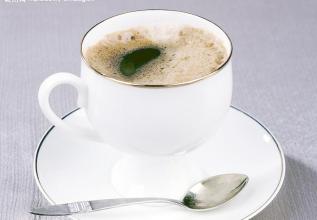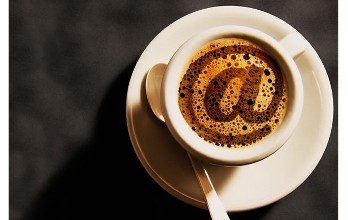Introduction to Hassanda Coffee Garden in Ecuadorian Coffee producing area
Ecuador uses a decimal metric unit of measurement and the temperature is measured in Celsius. But the weight is measured in pounds, and liquids (such as gasoline and diesel) are measured in gallons. Catholicism. Catholicism has been the main traditional religion in Ecuador since colonial times. Many churches have become famous tourist attractions because of their historical, architectural and artistic value. [national flag and national emblem] the national flag is made up of yellow, blue and red, with the national emblem painted in the middle. (see figure below) Economic indicators (2005) [GDP] $36.243 billion (2005). Of these, oil and minerals accounted for 23.6%, trade 15%, manufacturing 12.5%, transportation and communications 9.8%, agriculture, animal husbandry and fishery 8.2%, construction 7.3%, real estate and enterprise activities 5. 9%, government, national defense and social security 4.6%, education 3%, financial intermediation 2.9%. [per capita output value] US $2743.00 (2005) [economic growth rate] 3.93% [government budget] US $16.401 billion. [external debt] $11.25 billion in public debt and $8.075 billion in private debt (April 2006). [inflation rate] the annual inflation rate is 3.14%. [bank interest rate] the statutory bank interest rate is determined by the Central Bank of Ecuador and is the average reference rate set by the Ecuadorian financial system. In June 2006, when the central bank's benchmark interest rate was 2.93% 1535, Frey Thomas de Belanga of Spain and others stumbled upon the Galapagos Islands. Thomas was born in 1487 on the Douro River in the province of Soria, Spain, and was the fourth bishop of Panama at that time. He was ordered to go to Peru. When his ship set sail from Panama on February 23, under the impact of a strong current, they were taken to the unknown sea, and on March 10, they discovered a small island in the Galapagos Islands. At that time, there were only two days of fresh water left on the ship, and the sailors landed in lifeboats and found a large number of seals, sea turtles, giant tortoises that could carry people, and iguanas that looked like venomous snakes, but they did not find fresh water, so they sailed to another larger island more than 20 kilometers away. As there was still no wind, it took them several days to get there, and the water ran out quickly and they had to starve, including the horses on the boat without grass.
When Thomas and the crew landed on the island, they were frantically looking for water and were so thirsty that they squeezed juice from the fat leaves of the cactus to drink. At last a source of water was found in a rocky gully. Thomas attributed it to the gift of God, because it was good Friday, and they had piously celebrated mass before they set out in search of water. But Thomas will never know that the island they landed on is the only island in the Galapagos archipelago that has plenty of fresh water, today's St. Cristobal Island (Saint Cristobal).

Important Notice :
前街咖啡 FrontStreet Coffee has moved to new addredd:
FrontStreet Coffee Address: 315,Donghua East Road,GuangZhou
Tel:020 38364473
- Prev

Introduction to San Pero Manor in Puerto Rico Coffee Manor
Yaoke Yauco is an area of 176.5 square kilometers in southern Poland, named for its production of Tainos, but local residents prefer to call themselves la Ciudad del Caf (Coffee City) and la Capital Tana (Tainos Center). In the 1860s, immigrants from Corsican improved the cultivation of coffee and pioneered the application of flower stickers to the removal of coffee.
- Next

Introduction to Esmeralda Manor in Panama Coffee Manor
Boquet green green raw beans, high moisture content, beans are soft beans, so good heat transmission, so there is no need to worry about uneven baking, aroma and taste are excellent, smooth taste, dark chocolate, nutty aroma, high alcohol thickness, low acidity, long-lasting. [country of origin]: Panama [producing area]: Boquete [altitude]: 1550-1700 m [manor]: Villa Don
Related
- Does Rose Summer choose Blue, Green or Red? Detailed explanation of Rose Summer Coffee plots and Classification in Panamanian Jade Manor
- What is the difference between the origin, producing area, processing plant, cooperative and manor of coffee beans?
- How fine does the espresso powder fit? how to grind the espresso?
- Sca coffee roasting degree color card coffee roasting degree 8 roasting color values what do you mean?
- The practice of lattes: how to make lattes at home
- Introduction to Indonesian Fine Coffee beans-- Java Coffee producing area of Indonesian Arabica Coffee
- How much will the flavor of light and medium roasted rose summer be expressed? What baking level is rose summer suitable for?
- Introduction to the characteristics of washing, sun-drying or wet-planing coffee commonly used in Mantenin, Indonesia
- Price characteristics of Arabica Coffee Bean Starbucks introduction to Manning Coffee Bean Taste producing area Variety Manor
- What is the authentic Yega flavor? What are the flavor characteristics of the really excellent Yejasuffi coffee beans?

